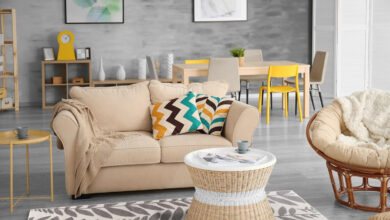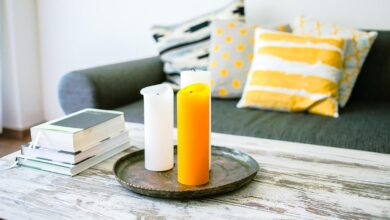
How Sustainable Home Design Impacts Our Well-Being
The way we live and the environments in which we spend the majority of our time have an enormous impact on our quality of life.
Interior design has been shown to be a contributor to feelings of well-being, happiness, and even productivity.
Employers are looking for ways to create spaces that inspire job satisfaction, arrangements are being made for public spaces such as parks and squares to offer the highest level of mental and physical benefits, and the philosophy of design-inspired happiness is brought into our homes as well.
If you’ve ever had the opportunity to do renovations, you’ve probably looked up information about what colors are best used in your living room.
Similarly, you may have been inspired by Scandinavian minimalism to pare down your list of belongings and create a relaxed, decluttered space. On the other hand, your focus might not be as much on design as on function, in which case, you’re interested in creating practical solutions that will solve day-to-day problems in ways that will save you time and money.
One topic that still doesn’t get much attention is how sustainable home design impacts our well-being. Although eco-friendly lifestyles have been shown time and again to have a host of physical and mental benefits, it’s important to consider how they can be implemented in the area of home design.
What is sustainable home design?
First of all, we need to define the meaning of sustainable home design. Eco-friendly homes are those that help owners minimize their negative environmental impact.
This is achieved by carefully selecting building materials, taking steps to make a home energy-efficient, and finding ways to conserve water or compost organic waste. Indoors, preference is given to natural and renewable materials over plastic or toxic chemicals.
Furthermore, sustainable homes may take a step further through employing an indoor or outdoor garden that serves either the purpose of growing edibles or greenery that improves air quality.
Tech and current trends are making it easier for people to go green. Smart appliances, as well as energy-efficient lighting and power outlets, can cut down electricity costs. Harnessing solar or wind power can even help homes become self-sufficient.
More and more people are looking to downgrade and minimize their living spaces in an effort to use fewer precious resources. Shipping container homes have had a particular popularity boom, as they’re a building method that allows people to reutilize structures that would otherwise be discarded. They also tend to be small and oriented towards minimalists who don’t shop, hoard, or create demand for low-quality, single-use household items.
How does sustainable design impact psychological well-being?
There are several ways in which your home’s design can influence your physical and mental health. Of course, these will largely depend on how you choose to equip your home, but also your personal preferences.
When it comes to psychological benefits, it’s important to note that whether an environment is relaxing, inspiring, or energizing will greatly depend on our own personal preferences. So, while some people may prefer neutral colors in their living spaces, others will feel more comfortable with bold visuals that draw the eye and make a statement.
But, of course, there are scientific, objective facts to consider as well. A room that is rich in greenery, for example, will help reduce stress and increase creativity.
Having plants around your house will also increase air quality, while certain scents (such as lavender) may even help relax you for a better night’s sleep.
While discussing sleep quality, it’s also important to note the type of lighting present in any room. As we are becoming more aware, blue light from electronic devices or LED lights can negatively influence the circadian rhythm, preventing us from getting enough sleep on a nightly basis.
Even simple hacks, such as limiting screen exposure two hours before our ideal bedtime, can have a hugely positive influence on our sleep quality.
What about physical health?
In terms of physical well-being, it’s important to note that sustainable lifestyles encourage (and sometimes even necessitate) healthier everyday habits.
Simple actions such as reducing the use of plastic in our homes, especially for food storage, can have a significant impact on overall health.
Other than that, sustainable materials tend to be natural renewables which are minimally treated in order to avoid harsh chemicals, but also to retain their visual connection to nature. Even a change as small as replacing synthetic bedsheets with organic cotton or linen ones can help you ensure better health for you and your family.
Research done to question the connectedness between sustainable living and health has also shown that people with access to green spaces (parks or gardens) had a lower risk of obesity, as well as of suffering the consequences of a sedentary lifestyle.
Something as simple as a backyard garden or a balcony with at least two hours of natural daylight can encourage spending time outdoors, which is crucial for ensuring sufficient vitamin D levels, important for both mental and physical health.
Bottom line
Living in an eco-friendly house or apartment can have a multitude of benefits, both physical and mental.
The fact is, just being conscious of our impact on the world can encourage us to make decisions that are, ultimately, better for our community and better for ourselves.
If you’re currently in the market for a property or are looking to renovate, now is the time to consider green alternatives. Even seemingly small changes such as installing energy-efficient lighting and low-flow showerheads or insulating your walls can have a huge environmental impact.
Likewise, lifestyle changes such as planting a herb garden or spending more time outdoors will inevitably tip the scales in favor of your physical and psychological health.






